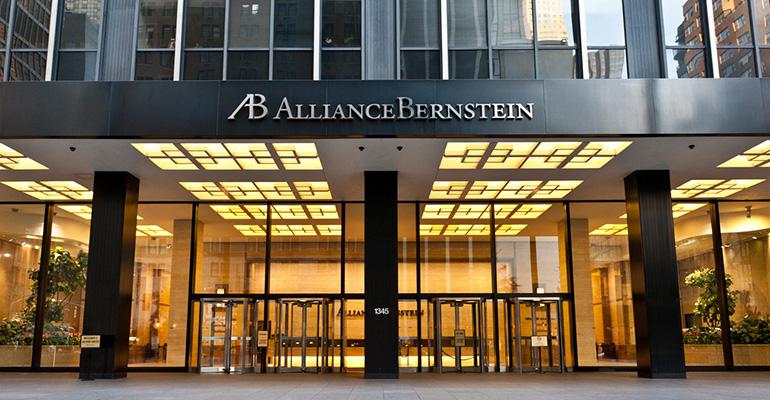(Bloomberg) -- AllianceBernstein Holding LP’s head of alternatives Matthew Bass is getting cozy with some of the world’s biggest banks.
The US fund manager that oversees almost $670 billion of assets is offering funding to lenders — enabling the banks to keep their most prestigious clients sweet — in return for a cut of the fees and access to their client contact books. AllianceBernstein has been working with a range of large global institutions and smaller regional banks in need of a capital partner to originate real estate and consumer finance loans.
“We’re able to leverage the banks’ relationship with borrowers, which they’ve developed over many years,” Bass said in a telephone interview. “At the same time, banks are able to keep those relationships if they continue lending, which provides a win/win for the bank and asset manager.”
The tie-ups mark a further blurring of the line between the roles of asset managers and lenders. For alternative asset managers, the deals give them the chance to deploy their dry powder and originate loans, while the banks get to maintain their client relationships even as regulatory pressure drives their withdrawal from lending.
AllianceBernstein’s banking partnerships are being funded by client capital raised across its almost $60 billion alternatives business, which houses private credit, commercial real estate and special opportunities. The firm is scaling up and investing in distribution for its private alternatives business, Bass said.
“We’re not in the back seat – we are riding shotgun with the banks,” Bass said. “The banks need to have meaningful skin in the game for it to work.”
Alternative managers and hedge funds have been embracing the rise of private credit - an industry that’s tripled in size since 2015 to $1.6 trillion today. It’s grown to encompass traditional direct lending to smaller companies and buyout financing as well as real estate and infrastructure debt.
Wall Street banks are trying to figure out the best way to compete with private credit, which is eating into the market share of the leveraged loan and high-yield bond markets, as well as other lending arms — a key fee generator.
In recent months, Barclays Plc, Societe Generale SA, Deutsche Bank AG and Wells Fargo & Co. have all made concerted efforts to grab a slice of the private credit market, with varying strategies that often involve some form of partnership with outside capital.
JPMorgan Chase & Co. is searching for a potential partner to grow its private credit business, Bloomberg reported earlier this month. The bank is in discussions with several asset managers including sovereign wealth funds, pension funds, endowments and alternative asset managers, people familiar with the situation said at the time.
For AllianceBernstein’s part, it is growing its alternatives business mainly to capitalize on an anticipated wave of stress amid a funding crunch at the banks, according to Bass.
It’s currently raising capital for a so-called NAV lending strategy, he said, a type of financing that allows firms to borrow against a pool of their portfolio companies. The debt product has surged in popularity as rising borrowing costs and weak valuations across the private equity industry have made it harder to sell assets and fundraise.
Bass said the firm is also targeting the ultra-wealthy — dubbed the holy grail by investors — as it allows them to expand their customer base beyond traditional pension funds and endowments.
“Private wealth investors are still under allocated to private credit and are looking for more products,” Bass said. “There’s a lot of education that goes with that which we’re spending time on.”
“We’re seeing investors generally want more granular information when it comes to private credit investments,” he added.





